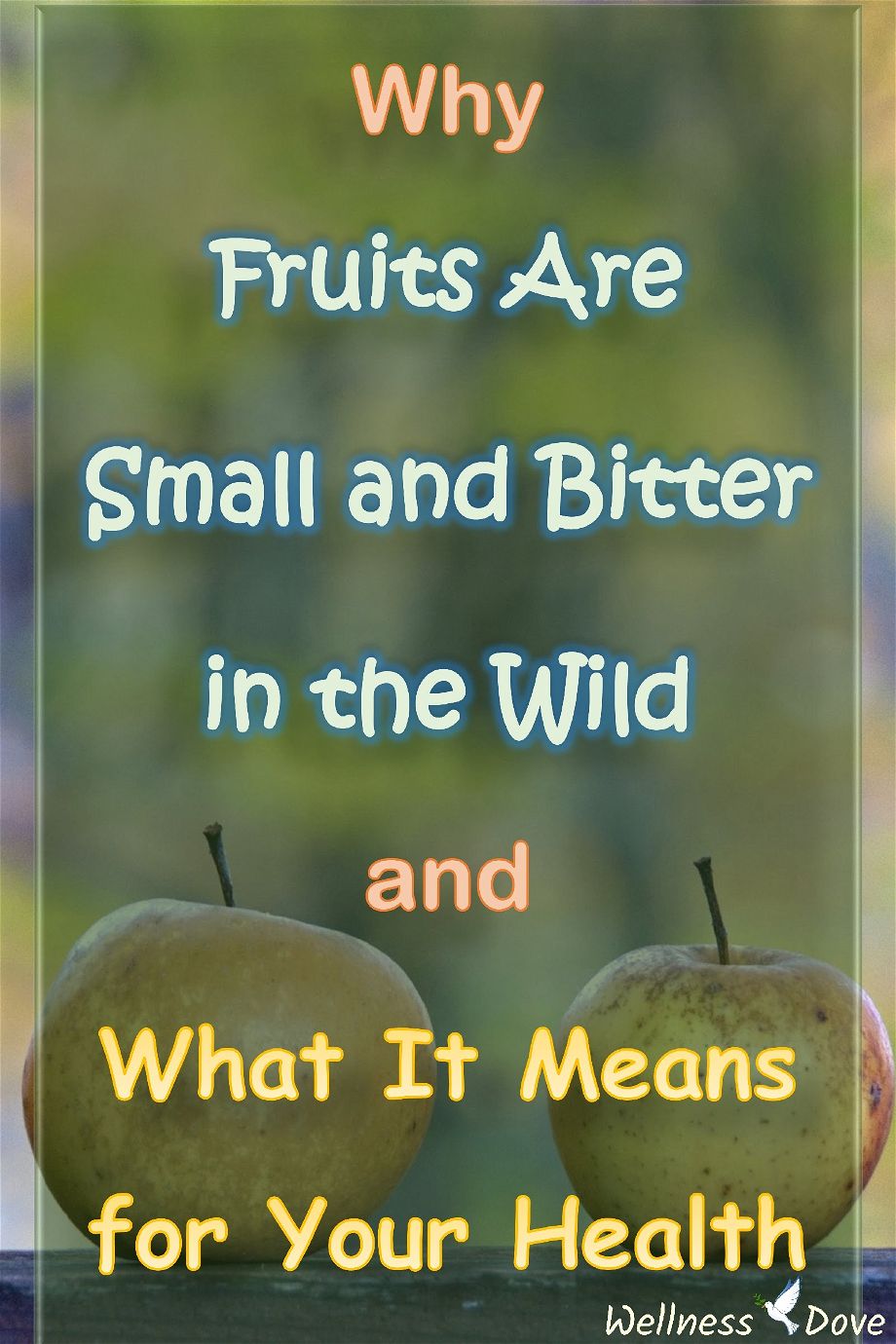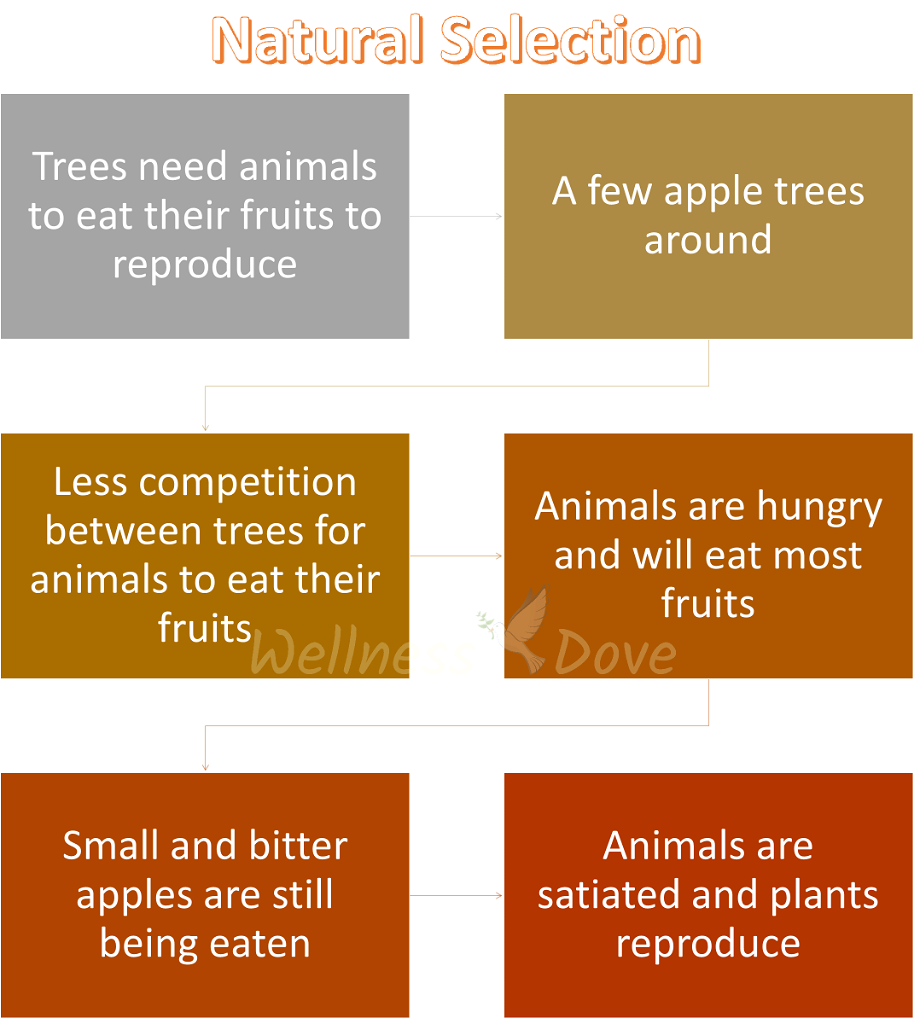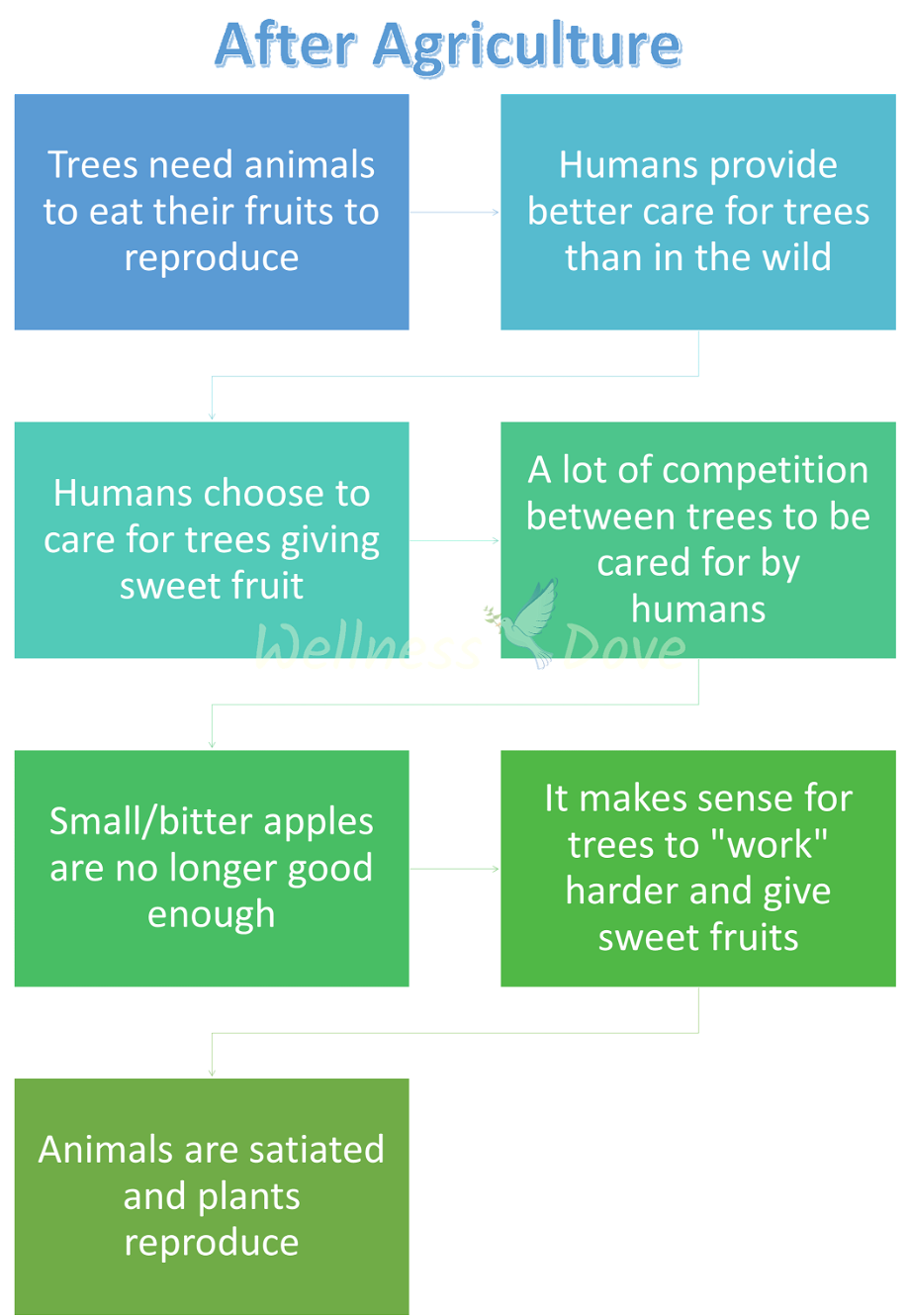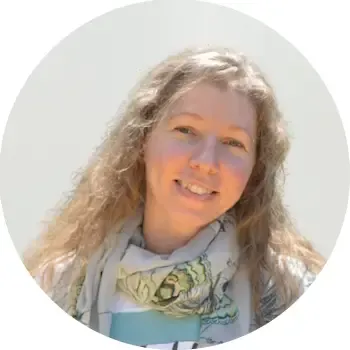 Is it not strange that its almost impossible to find any tomatoes growing in the wild?
Is it not strange that its almost impossible to find any tomatoes growing in the wild?
Nor cucumbers, peppers or even apples?
Well, apples yes, but they are small and bitter.
How it is so that we should rely on the supermarket or special seeds to grow our food.
And, should it matter at all, for our health or otherwise?
Post Contents
Natural selection at work
The small and bitter apples on the apple tree are the original apples nature created.
And they make a lot of sense.
Bitter and small fruits spare resources for the plant.
Small means easier for the plant to make. Not very sweet – the plant does not need to produce much calories (through photosynthesis).
The question is will somebody eat them and help the plant to reproduce?
Before we had agriculture, food was hard to find.
A hungry animal (or human) will eat everything that has a good number of calories in it. Grass is not worth it for is because it takes more energy for the human digestive system to digest the grass than the calories that the grass provides.
A bitter apple though, it is sweet enough for us to make the effort to eat it.
 Most likely whole, with the seeds and kernels.
Most likely whole, with the seeds and kernels.
And when the seeds go through our system and exit at the other end, they will reach the ground covered with, well, our excrement that is a nutritious fertilizer for any seed.
And so, another apple is planted.
Or a tomato, or a cucumber, or a banana…
Bananas in the wild are not whats in the supermarket. They have quite big seeds, actually. And they are nowhere near as sweet.
In an environment of scarcity, where calories are hard to find, bitter, fibrous and small fruits made a lot of sense.
Everybody is better off – the animal (human) is less hungry and the plant successfully reproduces.
The “human” natural selection
Food was scarce for millennia. It still is in most places.
However, about 10,000 years ago humans started to practice agriculture.
What that meant was that we no longer needed to roam vast lands just to find an apple tree.
We could grow an apple tree where we lived. Or a tomato. Or grains and beans…
 What also happened was that we noticed that some trees had sweeter/bigger fruits or gave a higher yield.
What also happened was that we noticed that some trees had sweeter/bigger fruits or gave a higher yield.
So we took the seeds from the tastier apples or tomatoes and planted them instead of the bitter ones of yesteryear.
The poor tomato no longer thrived just providing some calories, it needed to provide the most calories in order to reproduce. The apple tree was chopped down if it did not give sweeter apples as the next one.
That is how, through the ‘human’ selection the tomatoes from the supermarket can hardly be seen in the wild.
It takes a joint effort, though.
Imagine again, an environment of scarcity.
But not for humans. For plants.
That apple tree needs sunlight, water and good soil to flourish and produce not simply sweet but any apples at all.
And these resources are hard to come by.
In a forest the land is damp but only the highest trees survive and compete vigorously for sunlight.
Out in the open fields the sun might be abundant but the land is dry and barren.
The poor apple tree does not have it all. It struggles yet still manages to grow and give some apples. Bitter apples that our ancestors greatly appreciated.
When humans started to grow their plants, they worked hard to make sure that they had enough water, that they we not crowded and had enough sunlight.
We changed our plant in the sense that they gave better and bigger yields but we also cared for them.
And that is also why we can hardly find big, sweet apples in the wild.
What does all that mean for our health?
On the surface, its great.
Mostly, it means we have plenty to eat; it means we no longer survive, we thrive.
Today, we have enough food to feed the planet a couple of times over.
In the developed world hunger is no longer an issue.
There are some side effects
The ‘human’ selection has evolved into ‘human creation’.
Super sweet apples have a lot more fructose and a lot less fiber than the apples of yesteryear.
Literally yesteryear because in the last century we developed the technology to better care for our plants.
More importantly, though, we are now breeding them and not just selecting plant the apples around us that give the sweetest fruit.
We are very intense in our methods and probably that is why today’s apples are hundreds of times sweeter than those from 10,000 years ago.
Super sweet is not very good for you.
Technically, even the sweetest apples won’t make you sick but you should not overeat with them.
The rise of the Gluten issue
[su_pullquote align=”right”]Read more on the topic: Gluten Is Not as Unhealthy as You Might Think[/su_pullquote]Probably the most notable problem with hybridization and the ‘human’ selection is gluten.
The more gluten in the wheat, the higher yield it has.
You can imagine that the wheat we eat today has a lot more gluten than the varieties of millennia ago. Even from the varieties of 100 years ago.
Further, the gluten protein has 48 chromosomes instead of the original 12 in einkorn wheat (and probably less in ancient wheat varieties we don’t even know of).
A 100 years ago, people used wheat varieties such as einkorn and spelt. Which gave a high enough yield compared to other grasses.
Today, we have intensively and scientifically created varieties that give a lot higher yields but are no longer ‘natural’.
And that is why we have such rise to the gluten-free foods. Because the rest are frankengluten foods.
Unless you eat some 100% whole einkorn wheat bread (here’s why).
Do not worry that much
Eat a colorful and diverse whole foods diet.
Honestly, plant foods will always be great for you.
Bear in mind that probably some fruits are too sweet and gluten might not be super healthy.
Still, the important thing is to eat a variety of foods.
Let legumes, starchy vegetables, rice, corn and some whole wheat bread be the staple of your diet.
Some healthy seeds and nuts. Add a good amount of fruit.
A lot of colorful vegetables. Unlimited greens.
Be grateful of the plants that give you nutrition. Respect and care for them.
The rest is minutia.
Just, always, seek health consciously.


